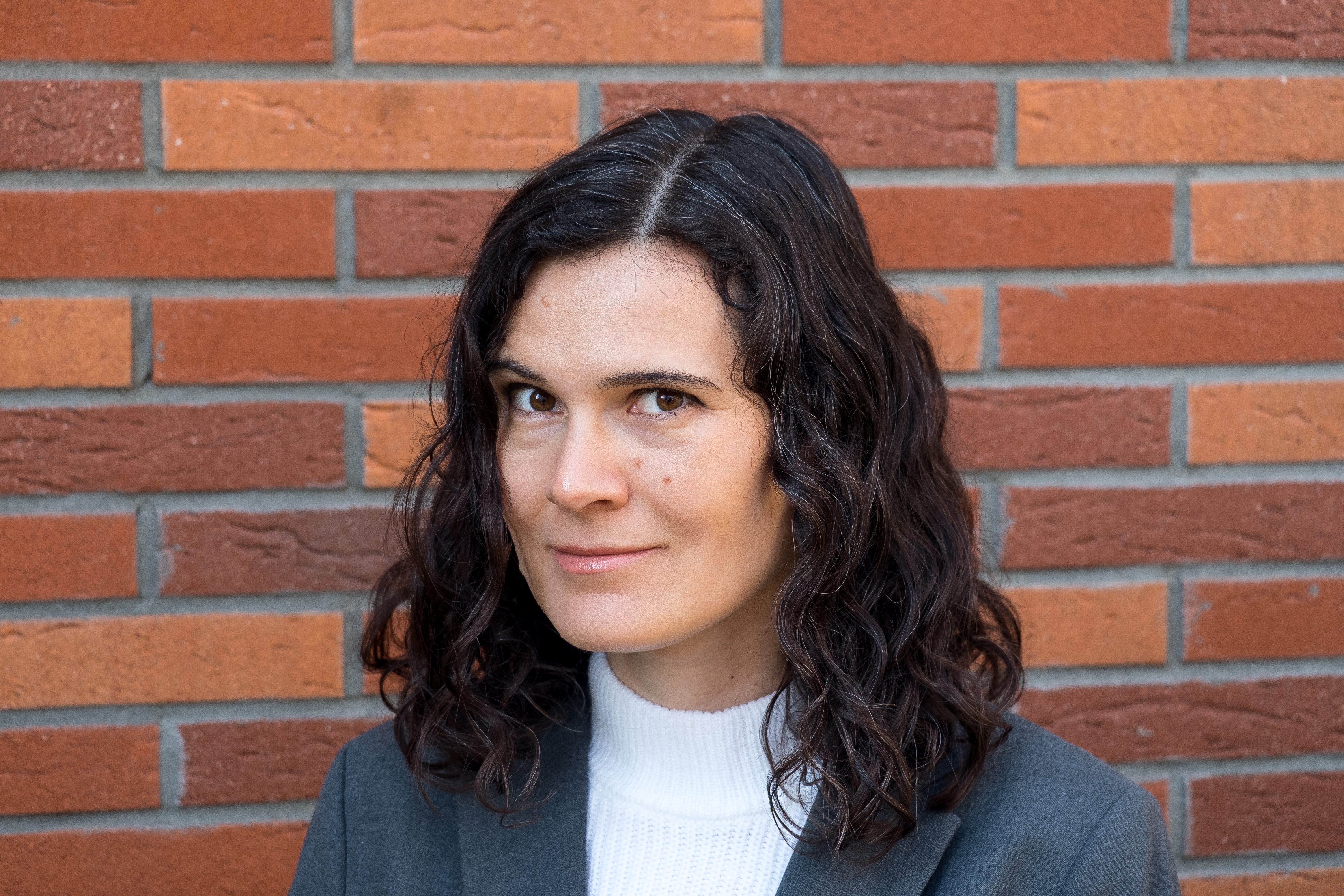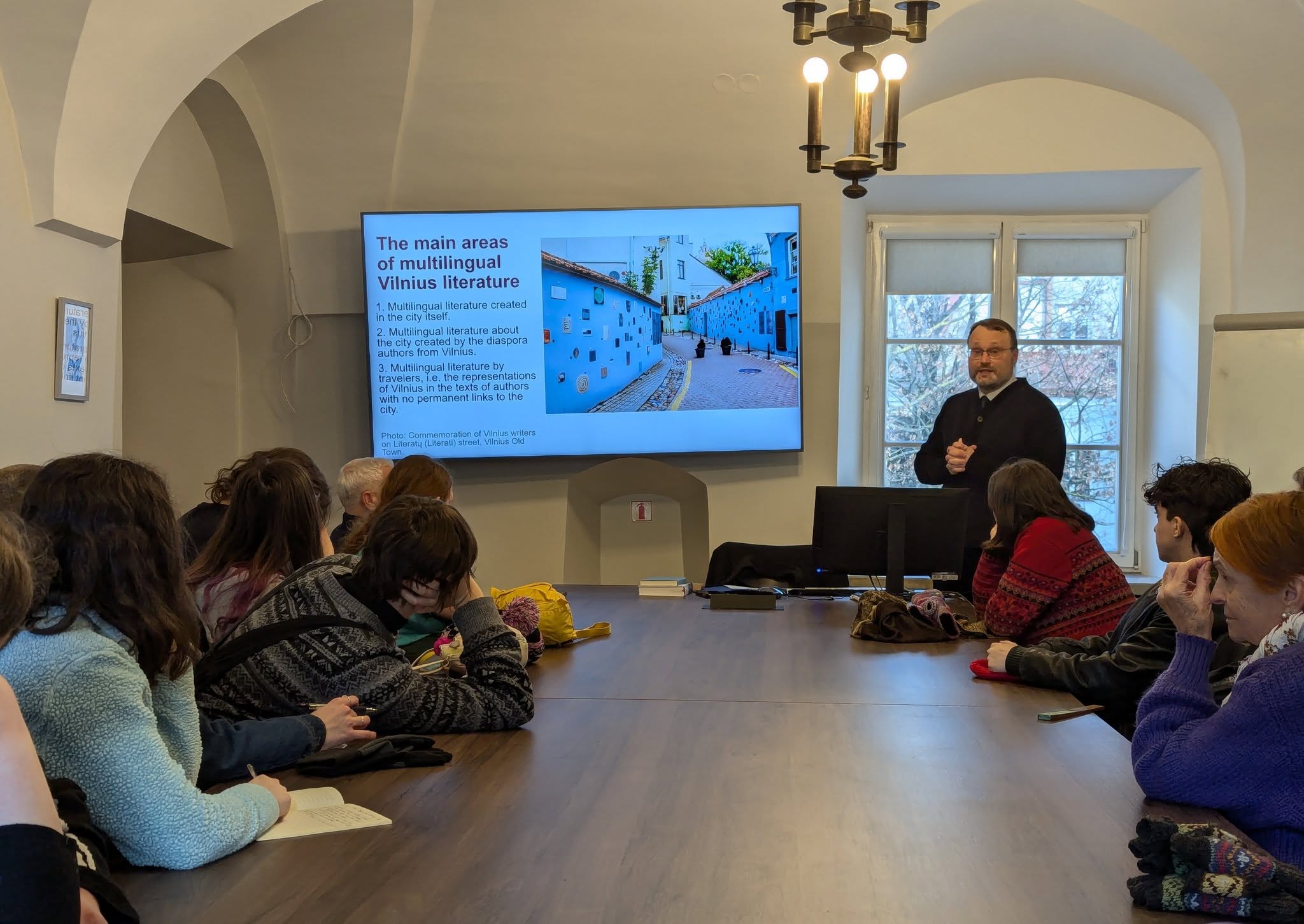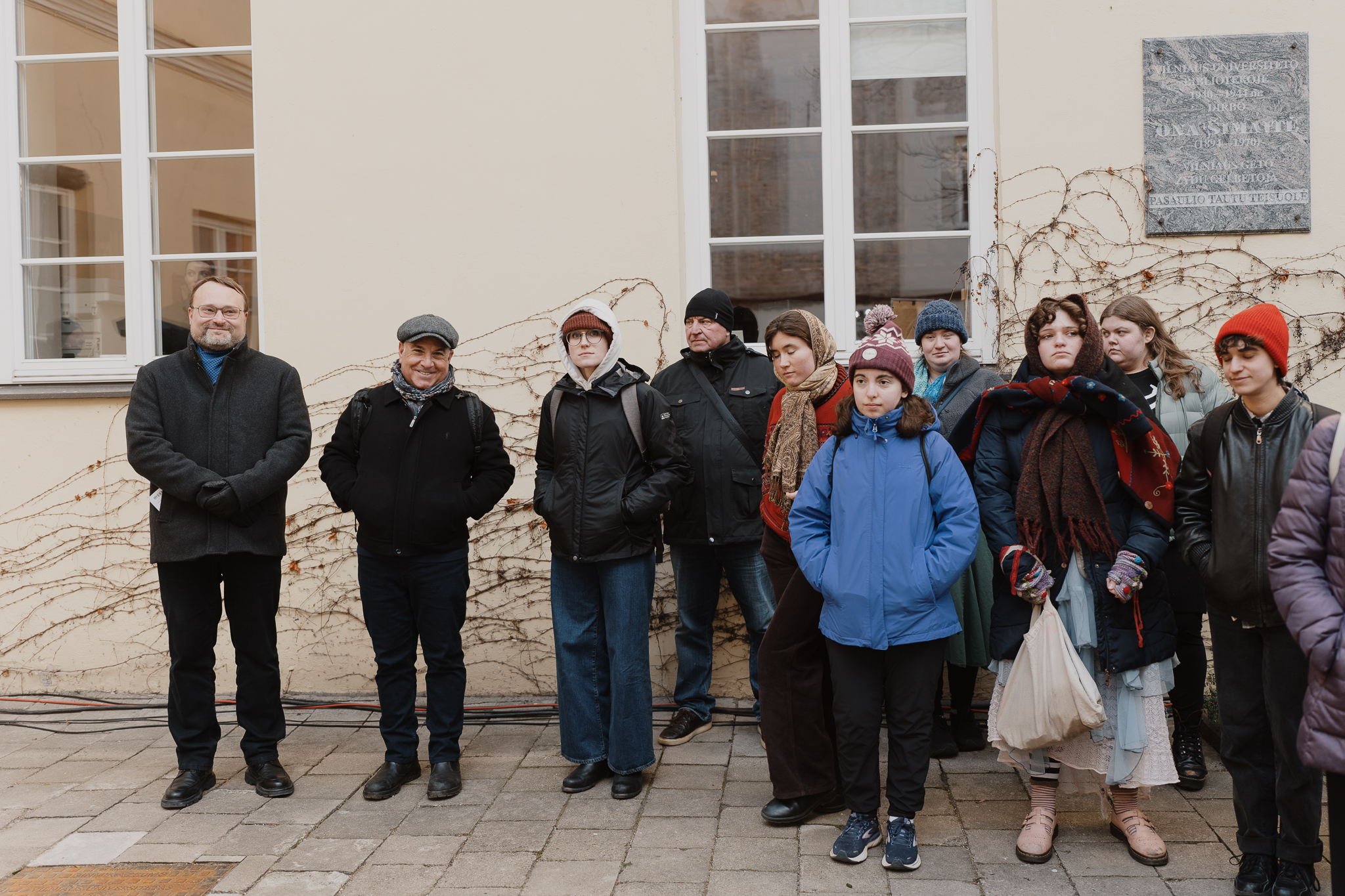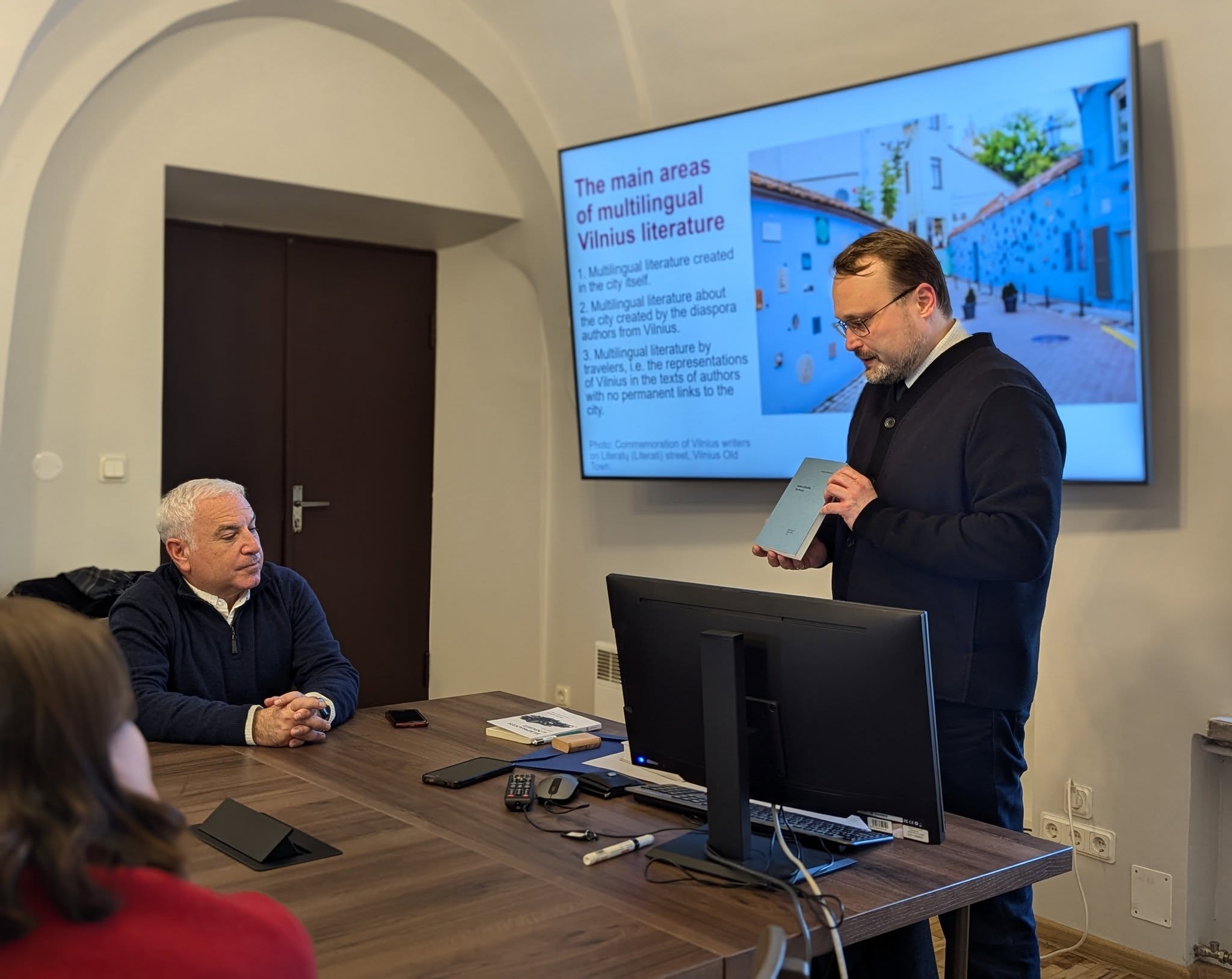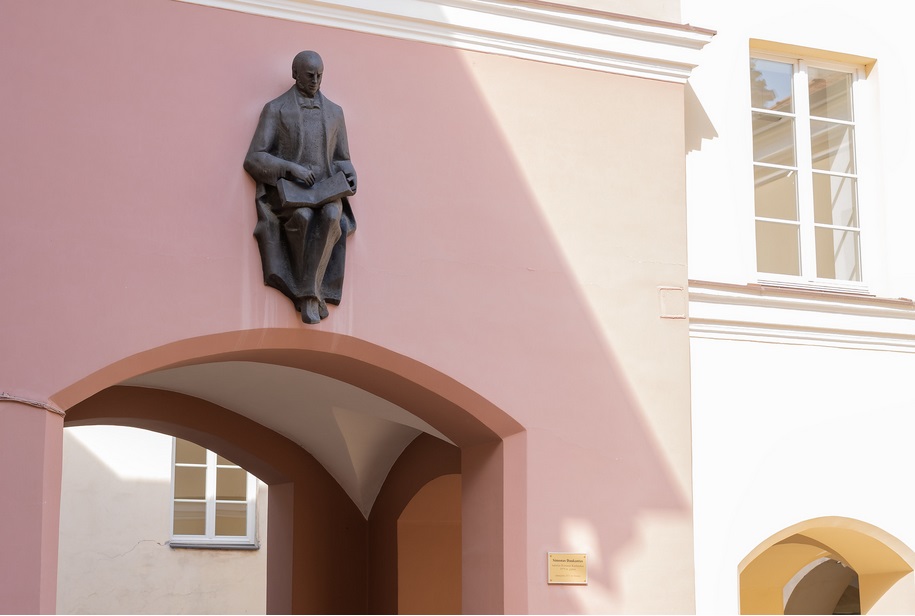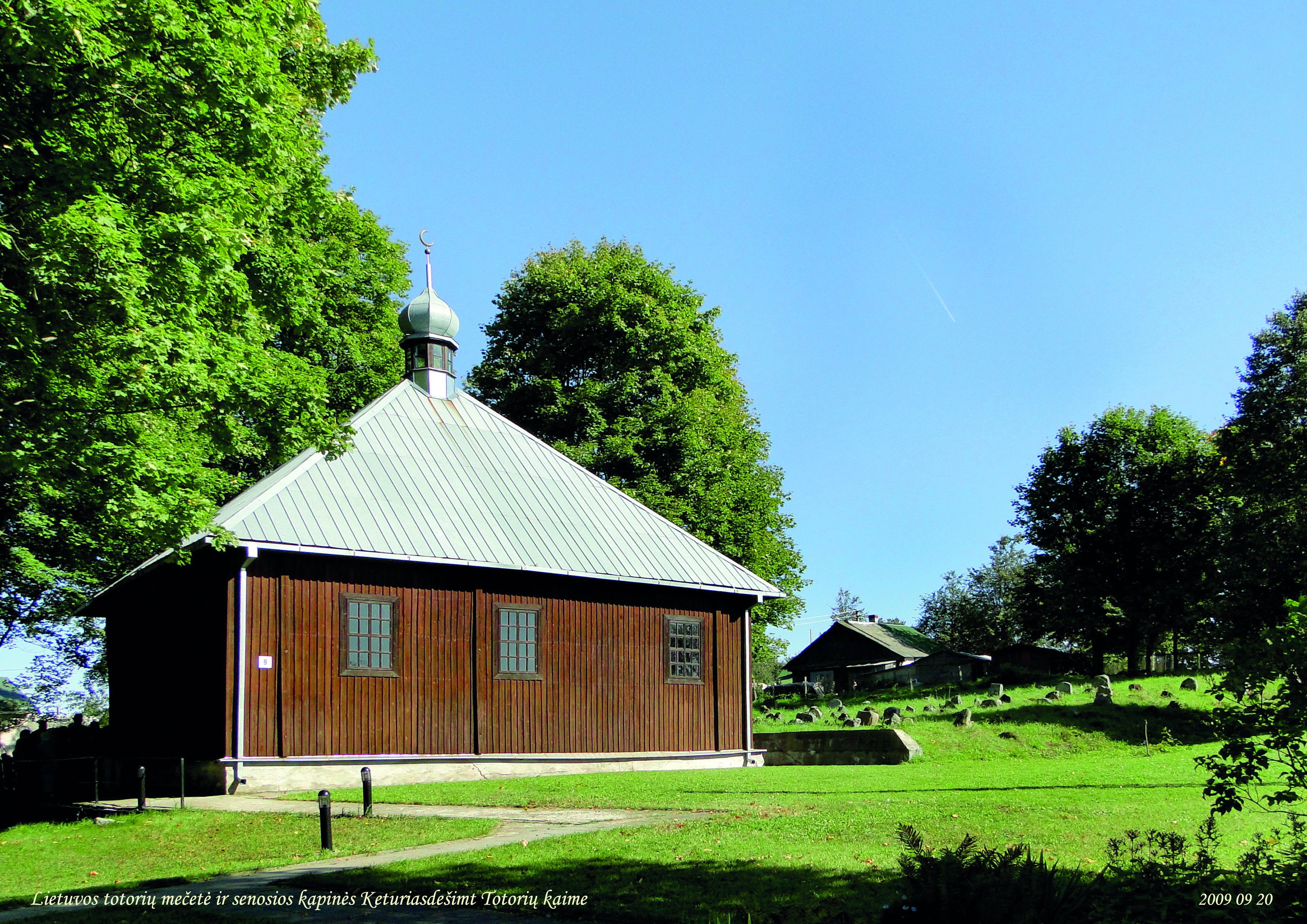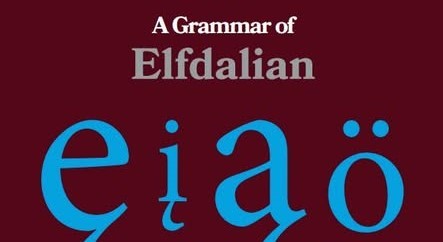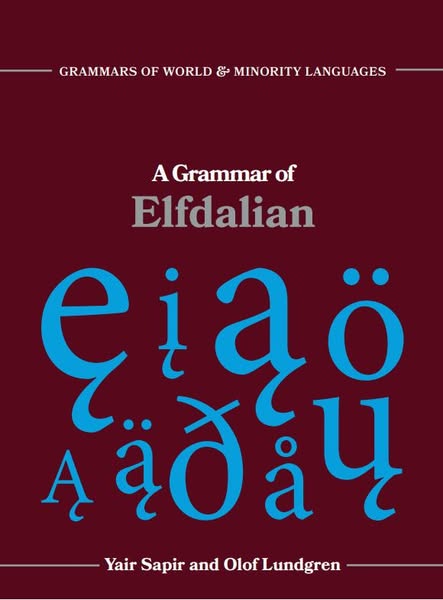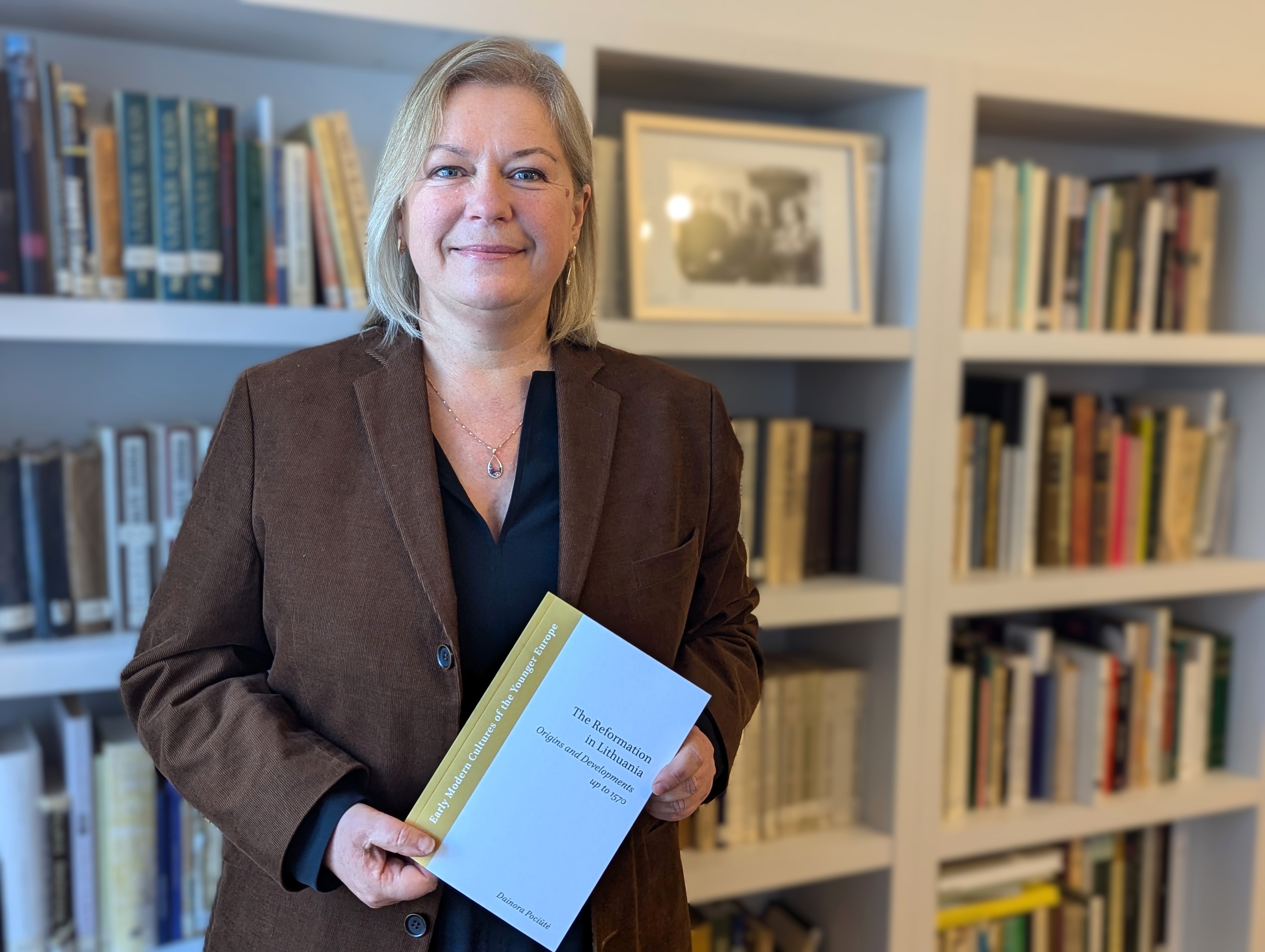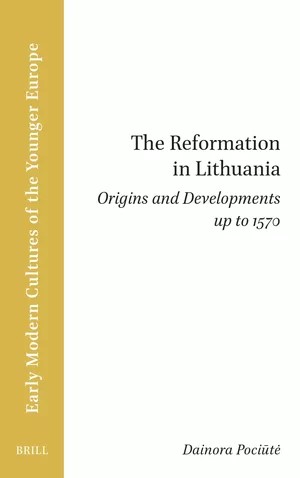
On 3–7 March, Vilnius University (VU) is holding its first emotional well-being week “Let’s Talk About It” which is dedicated to open and professional discussion on the emotional challenges, health, and well-being of students. The aim of the week’s events is to raise mental health awareness as well as to foster a supportive community where everybody feels heard. The main focus will be put on the students – the stress they are under, the challenges they face in relationships, and the ways of improving their emotional health. The vision is for this emotional well-being week to become a tradition in the largest university in Lithuania.
“As an academic community, we place great emphasis on learning, growing, and improving; however, often forgetting the importance of taking care of our mental health and emotional resilience. That is why the emotional well-being week “Let’s Talk About It” is designed to facilitate understanding oneself and the relationship with oneself, others, and the environment,” says Sandra Četrauskienė, head of the Community Well-Being Division.
VU psychologists and specialists invite students to participate in various activities to learn more about supporting friends facing psychological challenges, creating a healthy relationship with oneself, recognising and managing academic stress, and international students are invited to share their experience with cultural differences. Another planned activity is art therapy, designed to deepen self-awareness through creative expression. The week will culminate in a discussion on sensitive topics of loneliness and seeking authenticity.
VU community comprises more than 24 thousand students whose growth as healthy and emotionally strong persons is as important as them gaining knowledge. Emotional health is not a strictly individual matter, it also involves building meaningful relationships, maintaining psychological resilience, and navigating academic and personal challenges.
To register for the events, click here.
PROGRAMME
Seminar “How to Support a Friend Facing Psychological Challenges?”(in Lithuanian)
We are all familiar with the feeling when someone confides in us, sharing their struggles, and we find ourselves uncertain about the right words to say or the best way to respond. In this seminar, a psychologist will share how to reach a place of calmness and certainty in difficult conversations.
Time: Monday, 3 March, 13:00–14:30
Place: Room 239, the central premises
Address: Universiteto g. 3, Vilnius
Seminar “Relationship with Oneself Following the Principles of Gestalt Therapy” (in Lithuanian)
What is my relationship with myself? What do I feel in the present moment? How to understand myself in fostering relationships with others? In this seminar, VU Community Psychologists will guide you on the journey of self-discovery following the principles of Gestalt therapy.
Time: Monday, 3 March, 15:00–16:30
Place: TSPMI Garden Conservatory
Address: Vokiečių g. 10, Vilnius
Workshop “Art Therapy – What Does My Inner World Look Like?” (in Lithuanian)
Embark on a vibrant journey of self-discovery, where art becomes a bridge between your inner world and the outside reality. This is a safe and open space for self-expression—where no painting is "good" or "bad," only unique experiences waiting to be explored together.
Time: Tuesday, 4 March, 13:00–14:30
Place: Room 238, the central premises
Address: Universiteto g. 3, Vilnius
Seminar “Studying with Stress and Anxiety Under Control – Mission Possible!” (in Lithuanian)
Pressure and anxiety are some of the most important challenges to overcome in order to reach your objectives in academics. It is essential to have tools to manage them when they become overwhelming.
Time: Wednesday, 5 March, 15:00–16:30
Place: Room 239, the central premises
Address: Universiteto g. 3, Vilnius
Open Discussion for International Students “Surviving Culture Shocks in Lithuania” (in English)
Moving abroad is an exhilarating adventure that promises new horizons and exciting experiences. However, alongside the thrill often comes the encounter with culture shocks – those fascinating, yet confusing moments. Join us for an open discussion to talk about your unique experiences and connect with those on a similar journey.
Time: Wednesday, 5 March, 13:00–15:30
Place: Room 239, the central premises
Address: Universiteto g. 3, Vilnius
Discussion on Relationships and Authenticity “Feeling Lonely Amongst People” (in Lithuanian)
Everybody wishes to be heard and understood. However, showing your true self to others can sometimes be scary, causing feelings of uncertainty and fear of rejection. Here, the topic of authenticity will be discussed: why we hide our true selves, how to create sincere relationships, and how to learn to accept others and ourselves.
Time: Friday, 7 March, 13:00–14:30
Place: Room 225, Saulėtekis
Address: Saulėtekio al. 9, Connecting Premises II, Vilnius
Film Night at St Johns’ Church “Išgyventi vasarą” (“Summer Survivors”) (in Lithuanian)
Come to a unique film night, the showing of a multi-award winning Lithuanian film “Išgyventi vasarą” (“Summer Survivors”). The film portrays common mental health challenges, relationships, and empathy. The showing will be followed by a discussion on the topics explored in the film.
Time: Friday, 7 March, 17:00–20:00
Place: the Chapel of the priest Alfonsas Lipniūnas, St Johns’ Church
Address: Šv. Jonų g. 12, Vilnius
